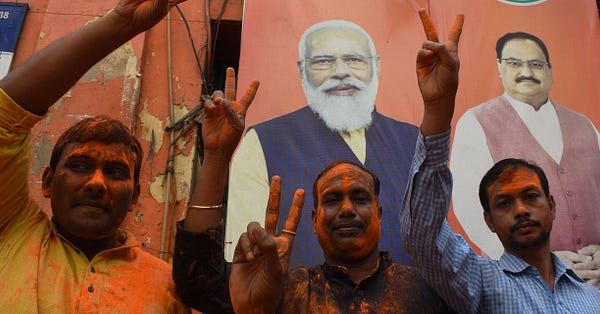How the West is Misinformed and How to Better Understand and Appreciate India
Recent comments from Western Government, Politicians and Media coverage of India's political issues reaffirm the fact that West is mostly clueless about India.
India is a country that has fascinated the West for centuries. From the spices and silks of the ancient Silk Road to the yoga and meditation of today, India has captured the imagination of Westerners throughout history. Yet, despite this fascination, the West often remains misinformed about India and its people. Stereotypes, cultural misunderstandings, political biases, and a lack of nuance all contribute to this misperception.
One of the most persistent stereotypes about India is that it is a land of snake charmers, poverty, and squalor. While these issues do exist in India, they are not the only aspects of the country. India is also a land of immense diversity, with a rich cultural heritage, a thriving economy, and a rapidly developing infrastructure. By focusing only on the negative aspects of India, the West fails to appreciate the full picture of this complex and dynamic country.
Another issue that contributes to the West's misperception of India is cultural misunderstandings. The West sometimes misunderstands Indian culture and practices, leading to misinterpretations and misrepresentations. For example, some Westerners might view Hinduism as a primitive and superstitious religion, while in reality, it is a rich and diverse tradition with a deep philosophical foundation. By failing to appreciate the nuances of Indian culture, the West misses out on the opportunity to learn from and appreciate this rich heritage.
Political biases also play a role in the West's perception of India. Some Western media outlets tend to focus on negative aspects of India's political and social climate, while ignoring the country's many positive achievements and initiatives. This one-sided coverage can contribute to a skewed and inaccurate view of India, perpetuating stereotypes and misunderstandings.


Finally, the West often lacks nuance in its understanding of India. It tends to view the country in simplistic terms, without considering the complex and diverse realities of its people, cultures, and regions. By failing to appreciate the nuances of India, the West misses out on the opportunity to engage in constructive dialogue and exchange of ideas with Indians.
To better understand and appreciate India, the West can take several steps. One of the best ways to promote understanding and appreciation of different cultures is through increased cultural exchange programs. The West can organize more programs that bring Indians and Westerners together, such as study abroad programs, internships, and language exchange programs. This can help people learn more about each other's cultures and foster greater mutual respect and understanding.


Balanced and nuanced media coverage is also essential. The Western media should strive to provide more balanced and nuanced coverage of India. This can involve featuring more positive stories about India's achievements and contributions, as well as highlighting the diversity and complexity of Indian society. Journalists and media outlets should also take care to avoid stereotypes and misrepresentations of India and its people.
The West can do more to recognize and appreciate India's many achievements and contributions to the world. India has made significant contributions to fields such as science, technology, and medicine, and has a rich cultural heritage that has influenced the world in many ways. By acknowledging and celebrating these achievements, the West can help to promote greater understanding and appreciation of India.
Finally, Western politicians can avoid stereotyping India as a third-world country by educating themselves about India, avoiding stereotypes, acknowledging India's progress, and engaging in constructive dialogue. By taking these steps, the West can demonstrate its respect for India and its people, and help to promote greater understanding and appreciation between the two regions.


In conclusion, India is a country that has much to offer the world, and the West can benefit greatly from a better understanding and appreciation of its people, culture, and contributions. By taking steps to promote cultural exchange, balanced media coverage





